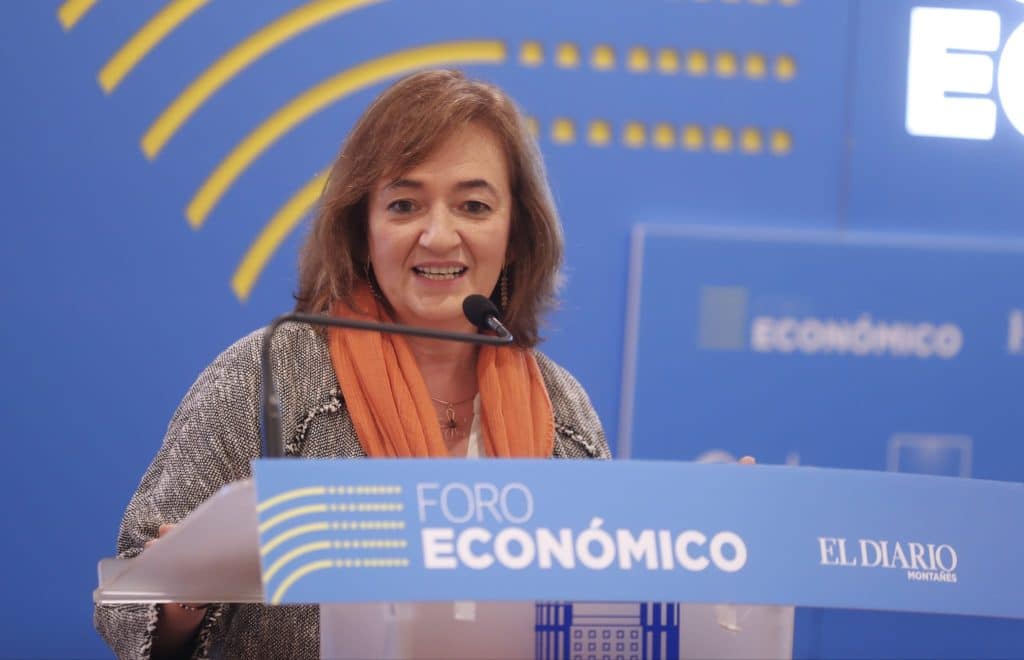
The president of the Independent Authority for Fiscal Responsibility (AIReF), Cristina Herrero, took part today in the Economic Forum of El Diario Montañés and stated that the definition of a forward-looking fiscal strategy is now an unavoidable task, given the vulnerable situation of public finances, the medium and long-term challenges -such as ageing or climate change-, the imminent reform of the European fiscal framework and the consequent reform of the national fiscal framework.
AIReF, through its reports, has recommended on numerous occasions the definition of this strategy to support economic recovery, provide fiscal guidance and guarantee the financial sustainability of the public administrations in a realistic and credible manner.
During her speech, Cristina Herrero reviewed AIReF’s economic forecasts which, once the most adverse scenarios have been overcome, point to real GDP growth stabilising at around 2% in the coming years. In the long term, real GDP growth is estimated to be close to 1.3% in the 2022-2070 average, as stated in the General Government Sustainability Opinion published last March.
She also reviewed AIReF’s fiscal forecasts, which estimate that, after a reduction in the deficit closely linked to the withdrawal of the measures to tackle the crisis, the deficit will stabilise at levels of 3% of GDP. Debt is on a slightly downward path, mainly due to the contribution of nominal growth, but it remains at levels above 100% of GDP, far from the target of 60%.
These estimates, according to the President, put public finances in a very vulnerable situation and reduce the room for manoeuvre in the face of long-term challenges that may lead to unfavourable debt dynamics due to age-related spending pressures and the pressure of the rising financial burden.
New tax rules
Moreover, the reform of the European fiscal framework is imminent and, in fact, countries with high debt, such as Spain, are already being required to define a forward-looking fiscal strategy despite the fact that the reform has not yet come into force. The legislative proposal put forward by the European Commission seeks to overcome short-termism and emphasises sustainability by requiring comprehensive four-year fiscal plans that ensure debt reduction.
According to AIReF’s long-term forecasts, the stabilisation of the deficit in Spain is insufficient to reduce the debt and the adjustment needed to bring this parameter onto a clearly downward path compatible with the Commission’s guidelines would amount to 0.46 GDP points per year. This annual adjustment over 4 years would generate a containment of around 30,000 million euros in the evolution of primary expenditure and would allow a reduction in the debt ratio of 24 points of GDP over the next 15 years.
AIReF’s simulations applied to the Government’s fiscal scenario suggest that the design of a fiscal strategy compatible with the Commission’s guidelines and with the proposed reform of the fiscal framework would also require an adjustment that, in this case, would be in the region of 0.3 GDP points per year.
Finally, the president of AIReF also pointed out the need to review the national fiscal framework and highlighted the role that Independent Fiscal Institutions such as AIReF will play as an integrating link between the general European framework that is set and the differentiated national reality of each country. In Spain, this role of integrating link will be even more relevant given the country’s decentralisation.






